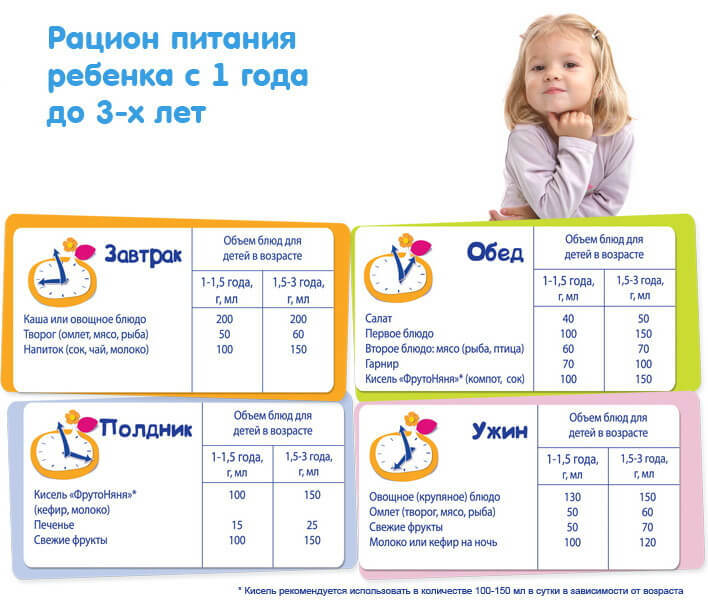Rhinitis in an infant: how to treat and what to do
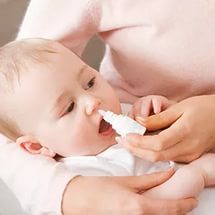
The commonest symptom of an acute respiratory-viral infection is the common cold( if expressed in the medical language - rhinitis), and it can occur even in infants.What to do and how to treat a runny nose in an infant - because it is contraindicated most drugs!And in general, is it necessary to treat this symptom at such an early age?
Table of contents:When you need to seek medical help
Many are sincerely sure that you do not need to cure a rhinitis-all the same it will take 7 days.But doctors say it is necessary, it is absolutely necessary, to treat a cold even in infants!
First, rhinitis is accompanied by strong unpleasant sensations - breathing is difficult, the head hurts, the mouth constantly dries, the skin over the upper lip often becomes inflamed and itchs due to constant contact with the slime flowing from the nose.And if the temperature rises, then the state of health worsens simply rapidly.Yes, the baby can not complain of the above feelings, but he experiences them - believe me.
Secondly, the complications even after a common runny nose have a place to be.At the tender age, sinusitis does not develop, but the inflammatory process can spread to the larynx, bronchi, pharynx, trachea.As a result of this spread of an acute respiratory viral infection, pneumonia may become a problem - in young children it is most often diagnosed as a complication of rhinitis.
Thirdly, properly implemented measures to alleviate the condition of the baby will ensure a quick disposal of nasal congestion and other associated symptoms.This will help improve the general condition of the infant - sleep and feeding will be full, no worry and, even more so, long crying.

Parents should remember that there are a number of situations when one should seek professional medical help. These include:
- is a runny nose in a newborn;
- the baby is sick for the first time, and there is no specific knowledge in the field of treating a common cold at such a small age;
- except for a runny nose, the child has coughing, lacrimation, frequent sneezing, lethargy, refusal to eat.
Drugs from the common cold in the child
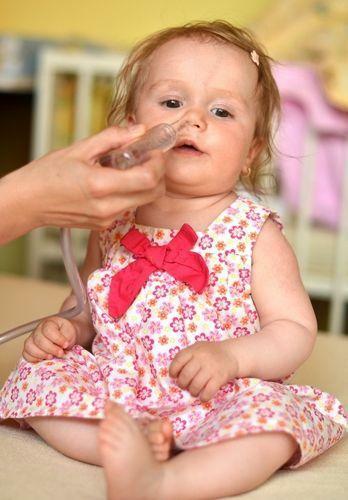 If the runny nose is accompanied by an increase in body temperature, then the child should be at home mode - take walks in the fresh air even at high air temperatures can not.It is allowed to bring a baby to the street( for 20 minutes) only after the normalization and stabilization of body temperature.To bathe an infant while developing a cold is impossible within 2-4 days after the appearance of the first symptoms.
If the runny nose is accompanied by an increase in body temperature, then the child should be at home mode - take walks in the fresh air even at high air temperatures can not.It is allowed to bring a baby to the street( for 20 minutes) only after the normalization and stabilization of body temperature.To bathe an infant while developing a cold is impossible within 2-4 days after the appearance of the first symptoms.
No special dietary regime for babies with runny nose is not necessary - if the appetite is saved, then the baby is fed according to the usual schedule, and if the patient refuses to eat, then do not force him - let him eat as much as he wants.
Note: in the days of the common cold, it is absolutely necessary to finish the child with clean water - a lot of liquid is drained from the mucus leaving the nose.If previously the infant was given juices and compotes, then they can replace clean water.
If the infant has only a runny nose, and there are no other symptoms of acute respiratory viral infection, it is appropriate to use topical drugs - nasal drops or sprays.Moreover, doctors recommend giving preference to drops, not sprays. All topical drugs can be divided into the following groups:
- vasoconstrictor;
- drops with antiseptics;
- moisturizing;
- antiviral.
Vasodilating drugs for the common cold
This group of medicines can remove the mucous edema almost immediately, which instantly facilitates the breathing of the child.In addition, vasoconstrictors slightly dry the nasal mucosa, reducing the amount of secreted fluid.
It is very important to remember - drops with the effect in question can be used no more than 3-4 consecutive days, and a day you can instill the remedy only three times.This is due to the fact that the composition of vasoconstrictive drugs from the common cold includes strong substances that can penetrate the baby even through the nasal mucosa.Pediatricians often notice severe allergic reactions in small patients, and vomiting even with a one-time overdose, and convulsions with too frequent instillation of the remedy( less than every 2 hours).
Of all the vasoconstrictor drops on the market for the treatment of infants, you can use Nazivin children 0.01% and Nazol baby.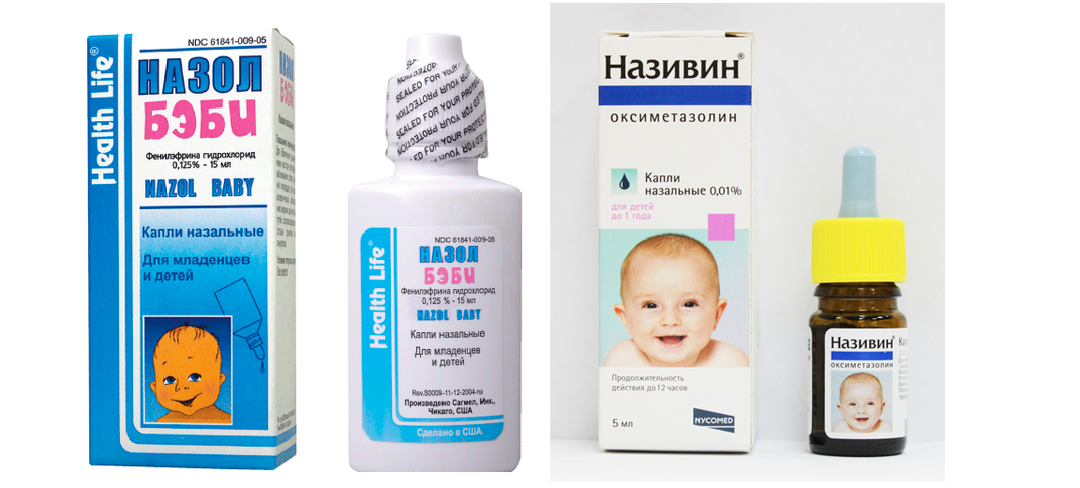
Antiviral drugs in the common cold in infants
These include Grippferon and Interferon http: //okeydoc.ru/interferon/ - they are available in the form of drops.It is not recommended to use antiviral drugs for the treatment of rhinitis in infants alone - the pediatrician should determine their dosage and duration of use.
Many doctors generally prefer not to prescribe the type of medication in question
Moisturizers for the common cold
Drops and products based on saline or sterile sea water will help liquefy the mucus in the nose, facilitate the procedure for sanitisation of the nose in the cold.Such moisturizers that should be used in the common cold in infants include Aquamaris, Salin( nasal spray), Otrivin baby( with a nasal aspirator).You can use as a moisturizer for rhinitis in infants and usual saline( 0, 9% NaCl).
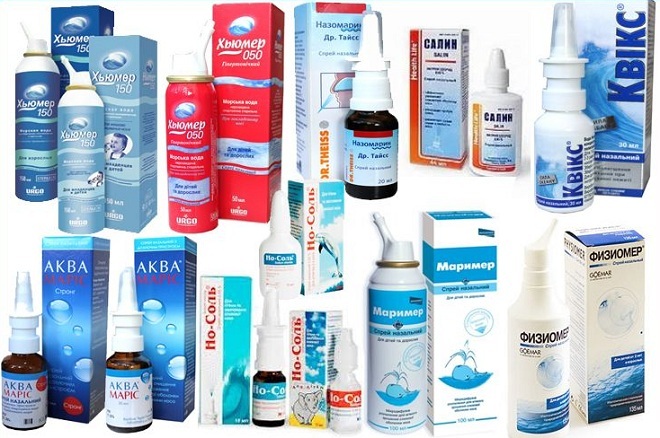
Procedure rules:
- it is possible to flush the nose to the infant every 2 hours;
- recommended dosage - 3-4 drops per each nostril or 1 dose of the drug( eg, one spray injection);
- it is advisable to wash your nose before instilling vasoconstrictive, antiviral and / or antiseptic drugs;
- during the procedure, it is necessary to firmly hold the child's head in the thrown up position;
- The tip of the pipette or the tip of the vial should not be injected too deep into the spout for the infant - it can damage the mucosa( maximum insertion depth is 50 mm).
Antiseptic medications for the common cold in infants
These medications are used only if purulent or mucopurulent contents are secreted from the nose of the infant.As a rule, doctors recommend using Protargol( manufactured on the basis of silver) as an antiseptic for rhinitis in babies, but it is impossible to get it ready-made - Protargol is manufactured in pharmacies by pharmacists according to a doctor's prescription.As an antiseptic for a cold, you can use Albacid - it's a drop for the eyes, but they can also be injected into the nose.
Note: , the level of danger of antiseptic medicines in the common cold is high enough in infants, therefore, in no case can they be used in the treatment of rhinitis without the appointment of a specialist.
Traditional medicine for a common cold in children
Recommended to read:Note: the effectiveness of these methods is not confirmed by official medicine.
There are several proven means to combat colds in infants that do not imply the use of medicines. These include:
- Rinsing and instillation of the infant's spout with saline solution.It can be prepared at home, dissolving in a glass of boiled warm water ¼ teaspoon of table salt.Bury the salt solution in the spout of the baby every 3 to 4 hours for 3 drops in each nostril.You need to prepare a new solution every 4 hours, even if there is something left from the past.
- Carrot juice as a nasal spray.This remedy has an antiviral, irritates the mucous, causing sneezing - this is how the spout clears from the accumulated and dried mucus.Bury the freshly prepared carrot juice no more than 3 times a day and only 1 drop in each nostril.
- Aloe juice.If the house is growing aloe, then rip off the leaf from the plant and put it for 2 days in a dry cool and dark place.Then extract the juice from the aloe leaf and dilute it with ordinary boiled water in a 1: 1 ratio.Bury 1 drop three times a day.
Note: , infants can not bury the Kalanchoe juice - this remedy causes too much irritation to the mucosa, which can even lead to vascular damage.
How and what to help an infant with a cold - additional recommendations
There are a number of activities that will help to quickly rid the baby of the cold and significantly ease his health. To those approved by pediatricians, are:
- If too much mucus accumulates in the nose, then you need to use special nasal aspirators.If this is not at hand, then the usual miniature syringe with a soft tip will do.Before the procedure of aspiration of accumulated mucus from the spout, it will be appropriate to put in moisturizers - they will facilitate liquefaction of mucus.
- The room in which the child is located should be regularly ventilated, even if there is a steady minus on the street.Be sure to make sure that the air in the room is not dry - install special humidifiers, place wet rags on the radiators, place open containers with water in the corners.
-
 In all rooms, place the garlic and onion, cut into large slices, on the saucers - these products emit a large amount of phytoncides, which have an antiviral effect.
In all rooms, place the garlic and onion, cut into large slices, on the saucers - these products emit a large amount of phytoncides, which have an antiviral effect. - It is not recommended to use inhalations for infants, use of a nebulizer is only possible in case of a combination of a cold with a cough and after consulting a pediatrician.
- Regularly remove crusts from the baby's spout - they form during the period when mucus is produced in small amounts.They can be removed either with gauze flagellum and vaseline oil, or using a moisturizer to soften them.
Treatment of a runny nose in an infant should be carried out necessarily - it will ease the condition of the baby, give him a restful sleep and accelerate the process of therapy.
For more information on what kind of danger a cold can present to a newborn, about cold medicine and effective ways to help a baby, you will get a look at this video review:
Tsygankova Yana Alexandrovna, medical reviewer, therapist of the highest qualification category

